Animals
-
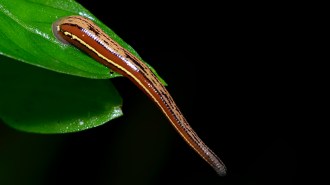 Animals
AnimalsLeeches expose wildlife’s whereabouts and may aid conservation efforts
DNA from the blood meals of more than 30,000 leeches shows how animals use the protected Ailaoshan Nature Reserve in China.
By Nikk Ogasa -
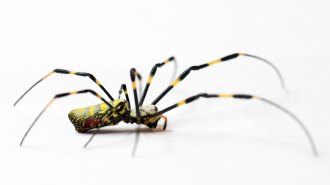 Animals
AnimalsInvasive jorō spiders get huge and flashy — if they’re female
Taking the pulse (literally) of female jorō spiders hints that the arachnid might push farther north than a relative that has stayed put in the South.
By Susan Milius -
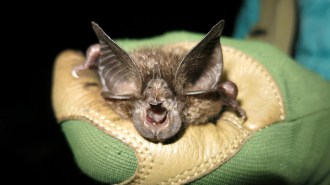 Animals
AnimalsHow scientists found an African bat lost to science for 40 years
African researchers had been searching for the Hill’s horseshoe bat since 2013. Now, the first recording of its echolocation call may help find more.
By Anna Gibbs -
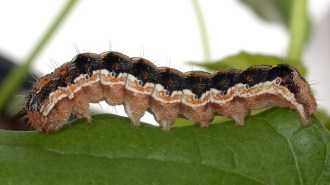 Life
LifeHow a virus turns caterpillars into zombies doomed to climb to their deaths
By manipulating genes used in vision, a virus sends its host caterpillar on a doomed quest for sunlight, increasing the chances for viral spread.
By Jake Buehler -
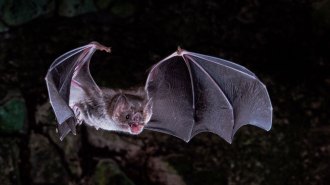 Life
LifeLost genes may help explain how vampire bats survive on blood alone
The 13 identified genes underpin a range of physiological and behavioral strategies that the bats have evolved.
-
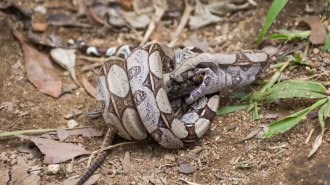 Animals
AnimalsHere’s how boa constrictors squeeze their dinner without suffocating themselves
Carefully controlled breathing allows boa constrictors to pull off their signature move without cutting off their own air supply.
-
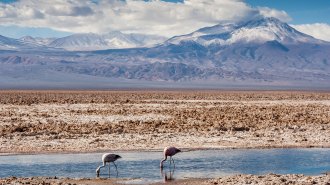 Life
LifeLithium mining may be putting some flamingos in Chile at risk
Climate change and lithium mining are threatening the flooded salt flats that flamingos in Chile depend on, a study suggests.
By Jake Buehler -
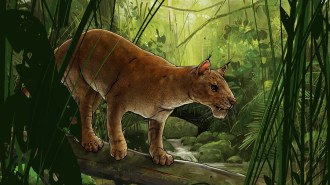 Paleontology
PaleontologyA new saber-toothed mammal was among the first hypercarnivores
A 42-million-year-old jawbone with slicing teeth and a gap to fit saberlike teeth is pegged to a new species of the mysterious Machaeroidine group.
-
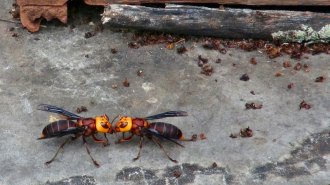 Animals
AnimalsHow to make irresistible traps for Asian giant hornets using sex
Traps baited with compounds found in the sex pheromone of hornet queens attracted thousands of males in China.
-
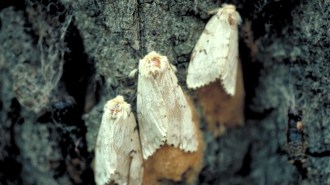 Animals
AnimalsThe spongy moth’s new name replaces an ethnic slur
The Entomological Society of America renamed Lymantria dispar the “spongy moth,” replacing its previous problematic common name, “gypsy moth.”
By Jude Coleman -
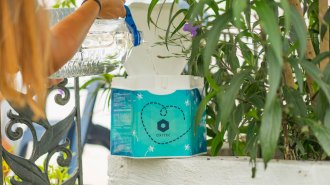 Animals
AnimalsGenetically modified mosquitoes could be tested in California soon
The EPA also OK’d more trials in Key West, Fla. Both states now get their say in whether to release free-flying Aedes aegypti to sabotage their own kind.
By Susan Milius -
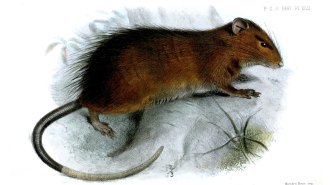 Genetics
GeneticsAn extinct rat shows CRISPR’s limits for resurrecting species
Scientists recovered most of the Christmas Island rat’s genome. But the missing genes signal a problem for using gene editing to de-extinct species.
By Anna Gibbs